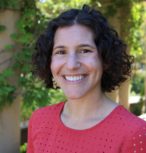DNA reveals the past and future of coral reefs
New DNA techniques are being used to understand how coral reacted to the end of the last ice age in order to better predict how they will cope with current changes to the climate. James Cook Univer

From 2005 to 2022, the main node of the ARC Centre of Excellence for Coral Reef Studies was headquartered at James Cook University in Townsville, Queensland (Australia)








Abstract: Disease transmission is a natural process that helps shape the ecology and evolution of all organisms on Earth, yet, the burden and distribution of disease outbreaks is changing at an alarming rate with ongoing climate change. In order to prevent or mitigate disease outbreaks, we first need to identify the conditions that allow diseases to emerge and spread at a given time and location. My research combines mathematical modeling with data from field and laboratory experiments to test hypotheses about disease spread at different spatial scales and across ecological systems to predict disease outbreaks in the future. In this talk, I will discuss my research on coral diseases and mosquito-borne diseases. Although seemingly very different, both disease systems are strongly influenced by climate, habitually under-detected, and currently have no widely available treatment. The first part of my talk will focus on an effort to develop forecasts for coral disease outbreaks across the tropical Pacific Ocean using satellite-derived and in situ data on biological, environmental, and anthropogenic drivers of disease. In this work, my colleagues and I have found that different combinations of reef structure, water motion, land-based development, and temperature exposure differentially drive disease transmission across host species and disease types. I will further discuss how we are adapting these mathematical models into forecasts of coral disease outbreak risk that will be integrated into the NOAA Coral Reef Watch product suite. Next, I will give a brief overview of my research developing predictive models of dengue and chikungunya transmission in Ecuador and Kenya. In this project, we found that temperature, rainfall, and humidity were strongly related to mosquito abundances and human disease cases through time, but interestingly, human behavior decoupled the expected relationship between rainfall and transmission. Finally, I will discuss important commonalities between coral and mosquito-borne disease systems that may more generally govern infectious disease dynamics.
Bio: Jamie Caldwell is broadly interested in global change and the ecology of infectious diseases. Her research investigates how diseases spread between individuals and among populations, with an emphasis on understanding environmental conditions that can be used to forecast disease outbreaks. She has studied disease transmission in a variety of systems from corals and seastars to human diseases such as dengue and Zika. Jamie received her B.Sc. from Penn State University and Ph.D. from the University of Hawaii in the USA. She is currently a postdoctoral fellow at Stanford University and a visiting scholar at the CoE at JCU.
New DNA techniques are being used to understand how coral reacted to the end of the last ice age in order to better predict how they will cope with current changes to the climate. James Cook Univer
A new study on the effects of climate change in five tropical countries has found fisheries are in more trouble than agriculture, and poor people are in the most danger. Distinguished Profess
James Cook University researchers have found brightly coloured fish are becoming increasingly rare as coral declines, with the phenomenon likely to get worse in the future. Christopher Hemingson, a
Researchers working with stakeholders in the Great Barrier Reef region have come up with ideas on how groups responsible for looking after the reef can operate more effectively when the next bleaching
Abstract: As marine species adapt to climate change, their heat tolerance will likely be under strong selection. Individual variation in heat tolerance and its heritability underpin the potential fo
Abstract: The Reef Ecology Lab in KAUST’s Red Sea Research Center explores many aspects of movement ecology of marine organisms, ranging from adult migrations to intergenerational larval dispersal
Abstract: Macroalgal meadows are a prominent, yet often maligned component of the tropical seascape. Our work at Ningaloo reef in WA demonstrate that canopy forming macroalgae provide habitat for ad
Abstract: Sharks are generally perceived as strong and fearsome animals. With fossils dating back at least 420 million years, sharks are not only majestic top predators but they also outlived dinosa
Abstract: Connectivity plays a vital role in many ecosystems through its effects on fundamental ecological and evolutionary processes. Its consequences for populations and metapopulations have been
Abstract: Evolution of many eukaryotic organisms is affected by interactions with microbes. Microbial symbioses can ultimately reflect host’s diet, habitat range, and even body shape. However, how
Abstract: The past few years have seen unprecedented coral bleaching and mortality on the Great Barrier Reef (GBR) but the consequences of this on biodiversity are not yet known. This talk will expl